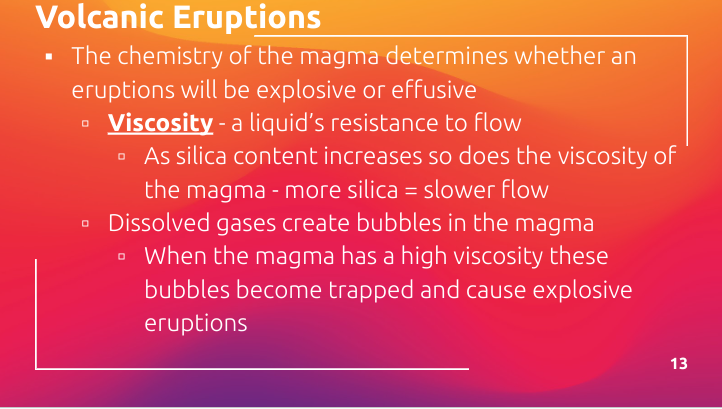
Understand the Problem
The text discusses volcanic eruptions and factors such as magma chemistry and viscosity that influence whether eruptions are explosive or effusive. It explains how silica content affects viscosity and how dissolved gases in magma can lead to explosive eruptions when trapped.
Answer
High silica increases viscosity, trapping gases, causing explosive eruptions.
The final answer is that high silica content increases magma viscosity, leading to trapped gas bubbles and explosive eruptions.
Answer for screen readers
The final answer is that high silica content increases magma viscosity, leading to trapped gas bubbles and explosive eruptions.
More Information
When magma has high viscosity due to silica, gas bubbles cannot escape easily, leading to pressure build-up and explosive eruptions. Effusive eruptions occur with low-viscosity magma, allowing gases to escape freely.
Tips
A common mistake is thinking low silica content leads to explosive eruptions when it actually results in effusive ones.
AI-generated content may contain errors. Please verify critical information